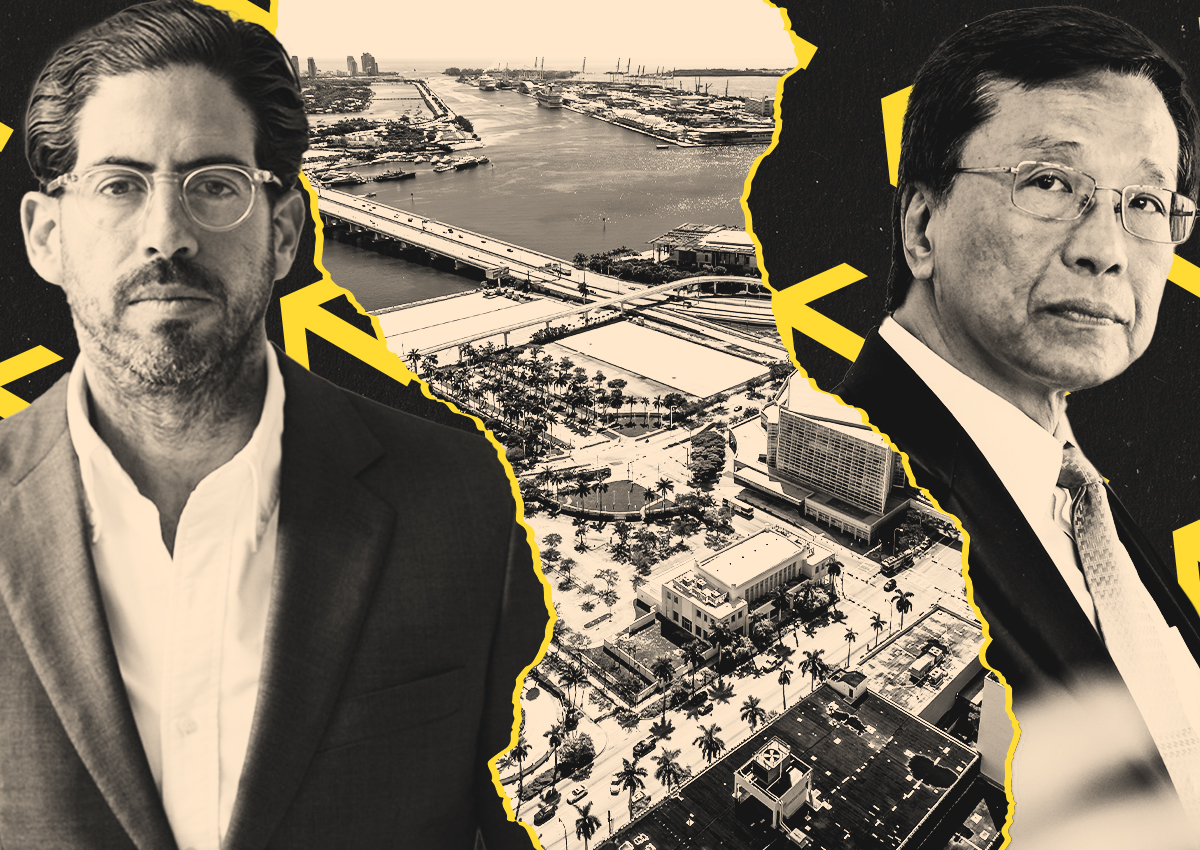What Terra’s Exit from $1B Deal Means for Miami RE Market
The shock is wearing off from developer David Martin’s decision to pull the plug on a record $1.2 billion purchase of a waterfront assemblage in Miami.
A reality check dusted with disappointment is setting in, brokers say.
Smart City Miami, the Terra-led group that canceled its contract to acquire Genting Group’s 15.5-acre partially bayfront property north of downtown Miami, had sought an extension and amendments to the terms of the sale, which Genting denied, the developer and Genting confirmed.
“Terra had asked for an extension, which is understandable in this market,” said Devlin Marinoff, co-managing partner of Dwntwn Realty Advisors. “The fact that Genting did not give them an extension I think was a huge, huge error.”
Many brokers called it a temporary setback. Terra could still rebid on the site at 1431 North Bayshore Drive, while Genting is likely in talks with four other groups that offered more than $1 billion for the property. The zoning allows for a mix of uses, which could include retail space and thousands of residential units. Condos would likely be built on the bayfront parcels, and rental apartments inland.
But the market hasn’t improved since Genting announced nearly two months ago that it was in contract with Terra’s Smart City.
Lender Brett Forman, managing partner of Forman Capital, said the sale’s falling apart is indicative that all real estate deals are harder to finance and ultimately close. Using a baseball game analogy, he said that the market is in the second inning of a downturn, even if Miami is somewhat insulated from some of the pain that other cities are experiencing.

“In the last six months, a lot of things have changed and not for the better…. The debt markets are very slow and challenging,” he said. “It’s still an outstanding piece of land, but things today are getting priced differently.”
Broker Miguel Pinto, CEO of Apex Capital Realty, agreed. “It is a super tough deal to put together in one of the toughest times we’ve seen in the last 10 years,” he said. “It would be amazing if Terra had done this deal. If I’m David Martin, I’m sure he wants to do this deal.”
Transaction volume has slowed dramatically since it peaked in 2021. Interest rates have doubled, and the costs of construction and insurance have soared.
It doesn’t help that land deals are “the most sensitive to changes in interest rates,” said one developer, who asked to remain anonymous.
Terra likely requested more time to determine density, as well as the infrastructure improvements that are needed. It may also have tried to negotiate the price. One source said the Terra-led group was expected to put up about half the money in cash, with the rest paid out in installments over a 10-year period.
It’s unclear how the deal would have been financed, though some speculated that the development firm was working with a sovereign wealth fund.
Terra has projects scattered across South Florida, in addition to a half-billion-dollar buyout of the Castle Beach condo complex it’s pursuing in Miami Beach. It also recently closed on a site in Midtown Miami with a partner for $40 million.
“[Developers] are being a little more picky and choosy about what they are deciding to work on,” said Matt Rotolante, president of Lee & Associates in South Florida. “At the end of the day, I think [Terra] might have had a project they’re more focused on on the beach.”

Terra declined to comment beyond a joint statement that it provided with Genting Group last week, confirming its decision to end its bid.
Slicing and dicing the deal
A deal of this size would set a record as the priciest urban land sale in the state, and one of the most expensive in the country.
“You cannot make a $1.2 billion business decision with investors” on a short timetable, said Tony Arellano, co-managing partner of Dwntwn Realty Advisors. “At the end of the day, if you’re using investors’ capital, you owe it to them to check every box.”
Genting, the Kuala Lumpur, Malaysia-based gambling operator, listed the land for sale late last year with an Avison Young team led by Michael Fay and John Crotty. Genting for years tried to secure gambling rights for the properties, but failed. With the eventual sale, it plans to keep the Hilton Miami Downtown hotel and Omni Center north of the assemblage.
Genting could also divide the site up into smaller parcels, similar to how Midtown Miami and Miami Worldcenter have been built. Or Genting could sell to one primary developer that does the same. Regardless, the site would be developed in phases, brokers and developers said.

“It’s a lot to take down all at once,” Rotolante said.
Some say Genting went to the market more than a year too late, and buyers missed the window for cheaper land debt. But others say that now is actually a good time, because it will take years to plan a phased project of that size.
“I think either David [Martin] will step back into the arena, or perhaps another world class developer like Related or Starwood,” said Ivan Chorney, a Compass agent. “Whatever comes in its place will be amazing.”
Though the price is high, Arellano disagreed that the deal fell apart because of pricing.
“I don’t think there’s anything wrong with the valuation. This market is not conducive to taking zoning risk or entitlement risk, especially if you’re paying a top price,” Arellano said. “You can’t make a mistake because you can’t lose money.”



